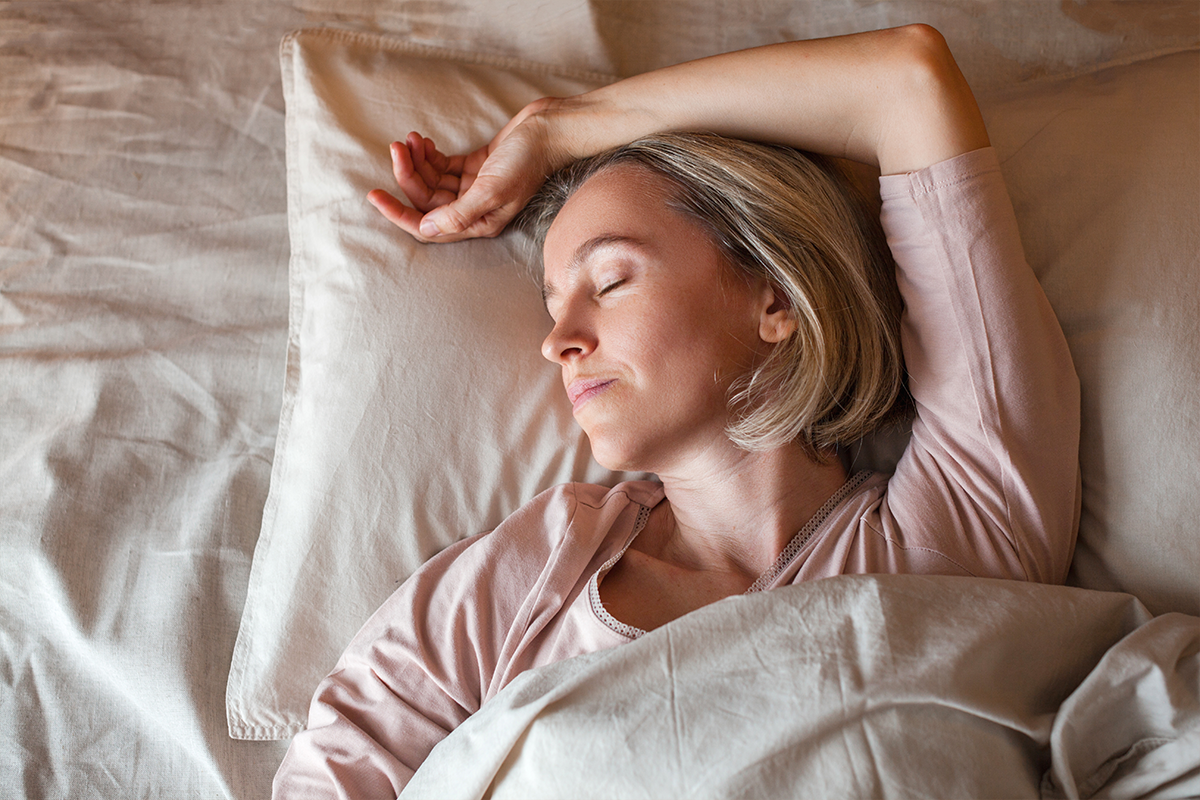Advertisement
Making up for Lost Sleep
The healing power of zzz’s and impact of counting sheep

Advertisement
Are you clocking enough hours?
Experts suggest that six hours is the minimum length of sleep required for optimal health in average adults. A recent study investigated the impact of having less than six hours of sleep for eight consecutive nights. The findings suggest that just one night of insufficient sleep can cause both mental and physical symptoms, which worsen with consecutive nights of lost sleep.
The study participants reported feeling angry, nervous, lonely, irritable, and frustrated from sleep loss. They also experienced symptoms including upper respiratory problems, pain, and digestive issues. These symptoms did not return to normal until participants had one night of at least six hours of sleep.
Factors associated with sleep loss
- chronic stress
- mental illness
- sedentary lifestyle
- electronic media use
- caffeine consumption
- shift work
- pregnancy
- menopause
- advanced age
- neurodegenerative disorders such as Alzheimer’s and Parkinson’s
Advertisement
Consequences of chronic sleep loss
While the mental and physical symptoms of acute sleep loss may subside once proper sleep duration has been restored, it’s harder for the body to recover if sleep loss becomes chronic.
Chronic sleep loss can contribute to systemic low-grade inflammation, which is involved in the development of conditions such as diabetes, atherosclerosis, and neurodegeneration. Research shows that sleep disturbance increases the risk of infectious disease and contributes to the development of cardiovascular disease, cancer, and depression.
Iron deficiency and sleep
Iron deficiency can contribute to restless leg syndrome, sleeping disorders, and chronic fatigue.
To assess your iron storage, ask your doctor to test ferritin in the blood. If ferritin is low but you’re eating plenty of iron-rich foods, look into potential hindrances to iron absorption, such as antacid use, celiac disease, and H. pylori infection.
Advertisement
Sleep Rx
Sleep allows the body to rest and repair, the effects of which are crucial for daytime functioning and overall health.
Advertisement
Mood
Sleep is vital for emotional processing and memory consolidation. Sleep loss impairs long-term memory and attention, and can lead to increased anger, frustration, and anxiety.
Advertisement
Performance
Sleep loss impairs the speed and accuracy of task performance, decision-making, and exercise recovery.
Advertisement
Hormones
Sleep drives the synthesis of reproductive hormones, and sleep deprivation is associated with infertility in both men and women.
Advertisement
Immunity
Sleep promotes balance in the immune system by regulating inflammatory mediators known as cytokines. Short sleep duration and shift work are associated with increased upper respiratory infections and chest colds.
Advertisement
Metabolism
Sleep may play a role in staving off diabetes, weight gain, and obesity. Chronic sleep loss increases the risk of metabolic dysfunction and loss of muscle mass. Insufficient sleep leads to increased eating and weight gain in women, whereas restoring adequate sleep decreases caloric intake, particularly from fats and carbohydrates.
Advertisement
REM me up
Rapid eye movement (REM) sleep is the fourth of four stages that the brain cycles through during its rest. This is the stage in which we dream, process emotions, and prepare for next-day emotional and social functions. During REM sleep, we consolidate learning and memory.
Emotional brain processing depends upon a regular sleep/wake rhythm, which tends to be disturbed among those with depression. Changes in serotonin may also contribute to REM sleep abnormalities in depression.
Cut the caffeine cycle
It’s no surprise that caffeine can reduce total sleep time, impair sleep quality, and cause dependence. But if you need it to turn on your brain for the day, how do you break free from the cycle?
Baby steps are better than cold turkey. Slowly weaning off caffeine reduces the risk of caffeine withdrawal headaches and migraines.
Improve sleep quality and quantity with lifestyle practices such as deep breathing, yoga, mindfulness meditation, tai chi, and barefoot grounding.
Advertisement
Benefits of a power nap
This sweet respite of unconsciousness during your day may be an effective way to recover from sleep debt. Napping has been shown to improve performance and alertness among those with regular sleep deprivation, including night shift workers and pilots.
Research is inconclusive about the ideal nap length, although one study in athletes found that a long nap (35 to 90 minutes) is superior to a short nap (20 to 30 minutes) for improving exercise, cognitive performance, and perceptual responses.
Another study shows that a midday nap as short as six minutes exerts a positive effect on memory function.
Sleepy supplements
| Supplement | Benefit [CHARTHEADS] |
| melatonin | exerts positive effects on sleep quality |
| iron | improves restless leg syndrome, sleep quality, and fatigue among those with iron deficiency |
| valerian | may promote sleep and prevent anxiety related to sleep loss |
| passion flower | may reduce stress-related insomnia |
| CBD | may assist REM sleep behaviour disorder and excessive daytime sleepiness |





